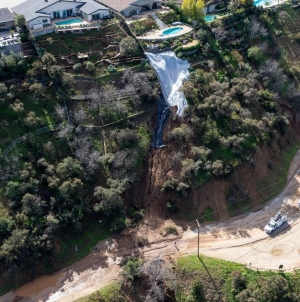-
U.S. sailor from Monterey Park admits selling secrets to China - October 10, 2023
-
A portion of Mulholland Drive, damaged by mudslides in winter storms, reopens - May 26, 2024
-
‘Maybe You Don’t Want to Win’ - May 26, 2024
-
Donald Trump Putting Law Enforcement in Danger: Attorney - May 25, 2024
-
Avoid the waters of these 5 L.A. County beaches this holiday weekend, public health officials say - May 25, 2024
-
Bawdy Comedy ‘Anora’ Wins Palme d’Or at Cannes Film Festival - May 25, 2024
-
Map Shows Heat Wave Zone Spread Into Five New States - May 25, 2024
-
Azusa police arrest suspected slingshot-wielding vandal - May 25, 2024
-
Donald Trump Hammers Judge Ahead of Jury Instructions - May 25, 2024
-
Sometimes U.S. and U.K. Politics Seem in Lock Step. Not This Year. - May 25, 2024
U.S. sailor from Monterey Park admits selling secrets to China
A U.S. sailor and resident of Monterey Park admitted he passed sensitive information and files to a Chinese intelligence officer in exchange for money, the Justice Department announced Tuesday.
Naval Petty Officer Wenheng Zhao, 26, also known as Thomas, pleaded guilty in U.S. federal court to one count of conspiring with a foreign intelligence officer and one count of receiving a bribe.
Zhao, a Chinese-born naturalized U.S. citizen, could spend up to 20 years in prison, five years for the conspiracy count and 15 years for bribery. Zhao is scheduled to be sentenced at a hearing on Jan. 8. He’s been in custody since his arrest on Aug. 3.
“Officer Zhao betrayed his country and the men and women of the U.S. Navy by accepting bribes from a foreign adversary,” U.S. Atty. Martin Estrada said in a statement.
The petty officer was stationed at Port Hueneme’s naval base when he started to pass sensitive material to a Chinese official between August 2021 and May 2023, according to Justice Department officials.
Zhao used his security clearance to enter restricted military installations and collect information on the Navy’s operational security, training, exercises and critical infrastructure.
Some of the specific information included large-scale maritime training exercise plans in the Pacific, operational orders and electrical diagrams. Blueprints from a radar system on Okinawa Island were also included.
Zhao then transmitted the information, using a “sophisticated encrypted communication method,” officials said, afterward destroying evidence and keeping his relationship with the official a secret.
Zhao received at least $15,000 paid out over 14 payments, though more money may have exchanged hands, Justice Department officials say.
“While he and the [Chinese] officer he served took great pains to conceal their corrupt scheme,” Estrada said, “investigators were vigilant in uncovering this shameful plot.”
The FBI’s Counterintelligence and Cyber Division of the Los Angeles Field Office and the Naval Criminal Investigative Service conducted the investigation, with the IRS Criminal Investigation agency providing assistance.
“Zhao put his fellow servicemen at risk when he yielded to overtures from the Chinese government, a nation actively targeting Americans who have access to state secrets,” said Donald Alway, FBI assistant director in charge of the Los Angeles field office. “I’m proud of the strong partnerships and hard work that resulted in today’s successful outcome.”
An attorney for Zhao did not respond to The Times’ request for comment.
Zhao’s arrest was announced on Aug. 3 along with that of Jinchao Wei, 22, another active-duty sailor serving at a Southern California base.
Wei was charged that day with espionage and pleaded not guilty. A status hearing is set for Feb. 12.
Source link































